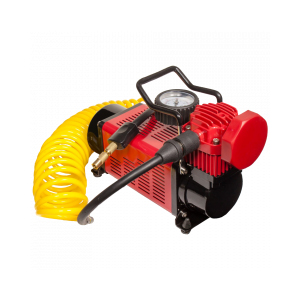oil seal use
The Importance of Oil Seal Use in Machinery
Oil seals, also known as grease seals or oil retaining seals, play a crucial role in various machinery and equipment. These essential components are designed to prevent the leakage of lubricants while also keeping contaminants like dirt and moisture out of crucial mechanical parts. Understanding the significance of oil seals can help in maintaining machinery efficiency and prolonging the lifespan of equipment.
Functionality of Oil Seals
The primary function of an oil seal is to contain the lubricating oil within a system, ensuring that moving parts are adequately lubricated. This lubrication minimizes friction and wear, ultimately enhancing the efficiency and performance of the machinery. The construction of oil seals typically includes a flexible elastic lip that creates a tight seal against a rotating shaft. This design prevents oils and other lubricants from escaping while simultaneously blocking unwanted materials from entering the assembly.
Oil seals are widely used in various applications, including automotive engines, gearboxes, pumps, and industrial machinery. Each application may require specific designs and materials to withstand different operating conditions, such as temperature ranges, exposure to chemicals, and pressure levels.
Types of Oil Seals
There are several types of oil seals available in the market, each suited for particular applications
1. Single Lip Oil Seals These are the most common type and are usually made from rubber or elastomer materials. They are ideal for moderate conditions and are easily replaceable.
oil seal use

2. Double Lip Oil Seals These seals offer an extra layer of protection against contaminants, making them suitable for harsher environments. They include an inner sealing lip and an outer dust lip.
3. V-Rings Designed to fit around a shaft, V-rings offer a lightweight and efficient way to prevent leakage and can accommodate slight misalignments.
4. Rotary Shaft Seals These seals are specifically designed to provide a tight fit around rotating shafts, ensuring maximum protection against leaks and contamination.
Benefits of Using Oil Seals
The benefits of using oil seals in machinery are manifold. By preventing oil leaks, they reduce the frequency of lubricant replenishment, thereby lowering maintenance costs. Additionally, by protecting internal components from dirt and moisture, oil seals help enhance the overall durability of machinery. This reduced wear and tear often lead to fewer breakdowns and increased operational reliability.
Investing in high-quality oil seals is crucial for any machinery operator. Regular inspections and timely replacements can significantly affect machine performance. Neglecting this small yet vital component can result in significant downtime and repair costs due to lubricating oil loss and contamination.
Conclusion
In summary, oil seals are indispensable components in the machinery and automotive industries. They serve to maintain lubrication, protect internal components from contaminants, and enhance the overall efficiency of mechanical systems. Understanding the types and benefits of oil seals can lead to better maintenance practices and ensure the longevity and reliability of your machinery. As equipment continues to advance and operate under more challenging conditions, the importance of using high-quality oil seals becomes increasingly evident. Investing in the right oil seal technology is essential for optimal machinery performance and operational success.
-
Understanding the Front Main Engine Seal: Purpose, Maintenance, and Installation
News Jul.29,2025
-
Understanding O-Rings and Seal Rings: Types, Applications, and Custom Solutions
News Jul.29,2025
-
Understanding Crankshaft Oil Seals: Rear Seals, Pulley Seals, and Their Role in Engine Integrity
News Jul.29,2025
-
The Importance of Front and Rear Crankshaft Seals in Engine Performance and Oil Management
News Jul.29,2025
-
Crank Oil Seals: Functions, Types, and Cost Considerations in Engine Maintenance
News Jul.29,2025
-
A Comprehensive Guide to O-Rings and Seals: Types, Materials, and Global Applications
News Jul.29,2025
-
Mastering Diesel and Performance Engine Maintenance: A Guide to Critical Oil Gaskets
News Jul.28,2025
Products categories















